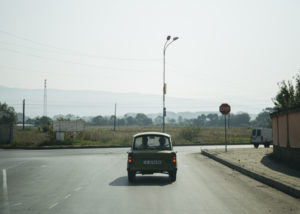Through the Lens of Transition has been a series of webinars held by Transition Dialogue over the course of May and June. We covered a range of topics, from the economy to public spaces, from education to media and the closing of borders, and have had the privilege of hearing from a wide variety of speakers, many of them experts in their field and all with interesting and thought-provoking experiences of their own surrounding the transition period and the current pandemic. Throughout the course of the webinar series, many ideas came up that fed into each other across all the topics and they create a fascinating insight into the current concerns and expectations that feed into pre-existing experiences of such a time of uncertainty.
A key idea that kept recurring was the concept of responsibility, both of organisations and of individuals, and their need to take it in a time of crisis. This is particularly relevant in discussions of the younger generation’s perception and therefore reaction to issues brought to light by the pandemic, such as of climate change and of economic stability. The latter was particularly important in discussions of the future of the European Union and its need to “show its power” in support of its members, as something did not exist in its current form as a wide-ranging structure for multiple members at the time of democratic transition thirty years ago. Perception leading to action was a similarly crucial point relating to this concept of responsibility, and this was particularly relevant when looking at the sceptical perception of public spaces and individuals experienced by those who lived through the transition period, and how the opportunity has arisen now for new perceptions to be formed.
Historical distrust and exclusion from discourse were related issues that tied into the need to reshape perception, and this was especially with regard to how memories of the transitional period have fed into experiences of the effects of the global pandemic today. Concerns were raised as to the potential negative effect of the pandemic upon global trust, as discussed during our “Closed Borders, Then and Now” webinar, where one of our speakers, Momchil Metodiev, touching on the notion that “open borders may be a right, but those rights may not remain permanent,” as each nation’s needs and issues become less internationally focussed and instead become more insular.
However, in spite of these anxieties surrounding distrust and disarray, one of the continual messages of our webinars ended up being one of hope for a reformation of society as we know it, and taking advantage of the potential for change that was also seen during the transition period. Alicja Pacewicz raised this issue in particular in our talk “Education, Interrupted” about the need to make the increasing digitalisation of our education systems more sustainable and systematic, and the hope generated by both the pandemic and the transition period: “Hope that this challenge is common for all of us. Maybe we will all see how education has to change… in a fundamental way. It will give us the push, not just for more digital education, but for a better education, better adapted for the future world that we and our students are going to create.”

